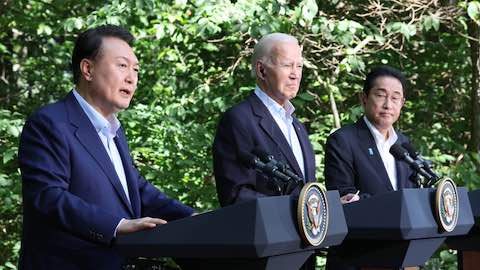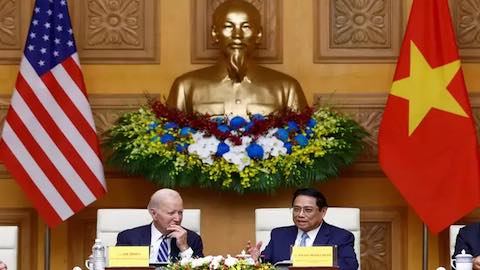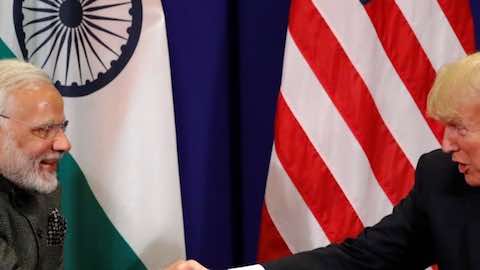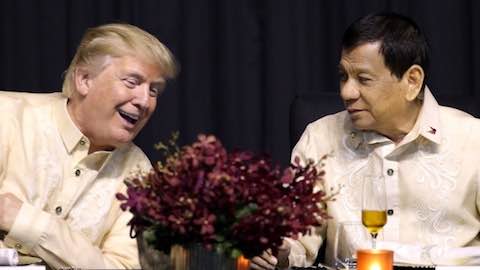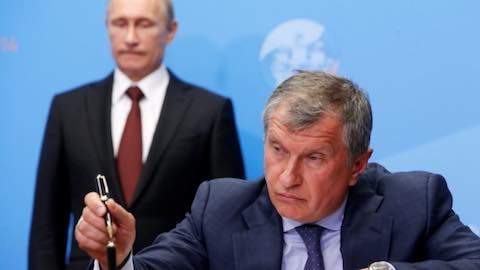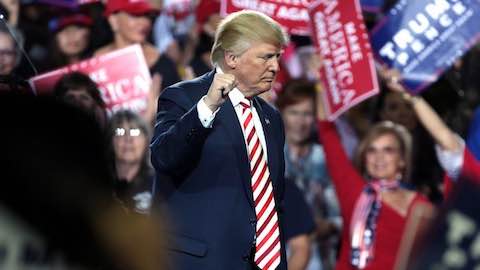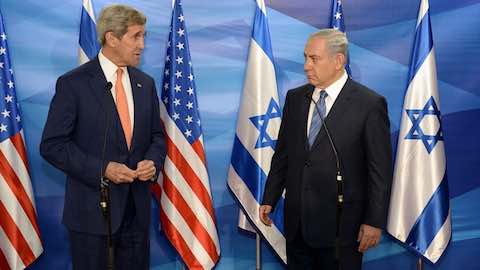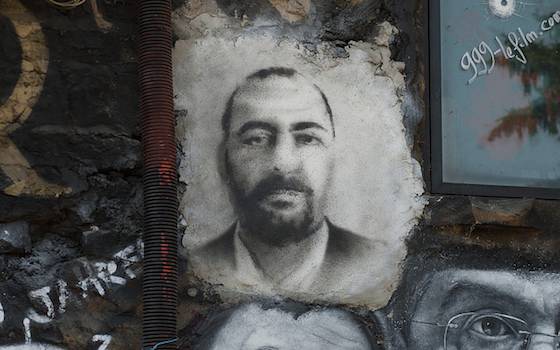- MENU
- HOME
- SEARCH
- WORLD
- MAIN
- AFRICA
- ASIA
- BALKANS
- EUROPE
- LATIN AMERICA
- MIDDLE EAST
- United Kingdom
- United States
- Argentina
- Australia
- Austria
- Benelux
- Brazil
- Canada
- China
- France
- Germany
- Greece
- Hungary
- India
- Indonesia
- Ireland
- Israel
- Italy
- Japan
- Korea
- Mexico
- New Zealand
- Pakistan
- Philippines
- Poland
- Russia
- South Africa
- Spain
- Taiwan
- Turkey
- USA
- BUSINESS
- WEALTH
- STOCKS
- TECH
- HEALTH
- LIFESTYLE
- ENTERTAINMENT
- SPORTS
- RSS
- iHaveNet.com: Foreign Policy
Countries
Argentina | Australia | Austria | Benelux | Brazil | Canada | China | France | Germany | Greece | Hungary | India | Indonesia | Ireland | Israel | Italy | Japan | Korea | Mexico | New Zealand | Pakistan | Philippines | Poland | Russia | South Africa | Spain | Taiwan | Turkey | United Kingdom | United States
Cities
Atlanta | Baltimore | Bay Area | Boston | Chicago | Cleveland | DC Area | Dallas | Denver | Detroit | Houston | Los Angeles | Miami | New York | Philadelphia | Phoenix | Pittsburgh | Portland | San Diego | Seattle | Silicon Valley | Saint Louis | Tampa | Twin Cities
- Time for Two American Embassies
- The End of Foreign Policy as We Know It
- The Trumping of Asia
- North Korea: The Cost of War Calculated
- Turkey: Friend or Frenemy?
- Military Spending on the Rise Again
- Backing Russia's Syria Ceasefire
- Trump's Israel Ambassador Set Off Alarms
- Immigrant Population at Record Highs
- Trump's National Security Strategy
- North Korea: A Cold Northern Spring
- Understanding the North Korea Threat
- From One Regime Change to Another
- Be Wary of a China Witch Hunt
- The Appeal of Trump's America First
- America's Standing in the World
- On The Warpath with North Korea?
- Trump, the Middle East & Foreign Policy
- Putin's Arctic Military Push
- Trump's Strategy for Africa
- Trump, China & Campaign Rhetoric
- The Crusades Are Back, With a Vengeance
- Gaza Blockade Inherently Violent
- Failing Afghanistan & the World
- China's Military Reorganization
- On Paper, We Should Crush ISIL
- Cuba: Hope and Change?
- U.S. Should Follow Suit
- Bombing ISIL Like Watering Its Roots
- Foreign Policy's Useful Idiot
- Endless War, Undeclared & Undebated
- The Global Militarisation Index
- A Radical Solution for Syria
- Saudi Arabia: Our Toxic Alliance
- What Better Cooperation Might Look Like
- Reviving the North Korea-Iran Axis?
- Cuba's Coming Out Party
- Ties with Mexico Have Never Been Closer
- The Geopolitics of Speeches
- Two-Track War Against ISIL
- Henry Kissinger: 'Low-Life Scum'
- Does Syria See the U.S. as an Ally?
- Cuban Relations Reimagined
- Cuba's Currency Conversion
- The Cold War Never Ended
- Jimmy Carter & Middle East Peace
- Hillary Clinton and the Neocons
- Trump's Alternative Worldview
- Obama's Foreign Policy Legacy
- US - Saudi Relations Finally Souring
- When Islam Polices Extremists
- Countries That Get the Most Aid
- Counter-Terrorism Cooperation
- The Greatest Danger to World Peace
- Enabling Police Brutality in Egypt
- What Comes After Empire?
- An Aerospace Nation
- Inside the U.S. Drone War on ISIL
- From Sovereignty to War
- Greenlighting Another Coup in Haiti?
- How Our Bases Undermine National Security
- The Star Trek Fallacy
- Intel Behind the Bin Laden Killing
- Guantanamo Bay's Place
- Understanding Turkey's Tilt
- Nations & Borders are Always Messy
- Praying for AIPAC's Decline
- Is China a Threat?
- The New Nuance in Chinese Diplomacy
- Low Point of US - Cuba Policy
-
China & The United States
- Ukraine: Red Meat for the NATO Alliance
- No Plan B for Obama's Foreign Policy
- A Hawk in the Wings
- China's Military Posture
- ISIL: In Retreat or Transition?
- Stopping Saudi's War in Yemen
- The Scope for Parallel Diplomacy
- Stabilizing Syria's Borders
- Peace for the Korean Peninsula
- A Fateful Triangle
- Hillary Armed Saudis to the Teeth
- Saudi Support a Humanitarian Disaster
- What's God Got to Do with It?
- Putin's Syrian Quagmire
- The Geopolitics of Cheap Oil
- Nature May Love a Vacuum
- ISIL's Sinews of War
- Stop Cheering for Russia in Syria
- The Establishment & World Peace
- Want a More Democratic UN?
- China: Opportunity Costs of 9/11
- The Weakening of Western Power
- Why South Korea Needs THAAD
- The Madness of THAAD
- When Bibi Came to Town
- More Than a Mexican Problem
- Obama's Last National Security Strategy
- Obama Clings to Diplomacy
- Obama's Diplomatic Dance with Putin is Sad
- Clinton Poses a Challenge to the Left
- Hillary's Foreign Policy Address
-
After his spectacular, but predictable, failure to move forward the "peace process" between Israel and the Palestinian side, Secretary of State John Kerry says the United States will now "evaluate" its role in the Middle East
-
Will everyone please stop talking about a new Cold War? However badly things work out between Russia and the West, a new Cold War isn't in the cards because Russia today isn't the Soviet Union. Sure, there are similarities, but ...
-
Two recent news stories underscore how the world of power politics and international affairs has changed since the darkest days of the Cold War, when the threat of nuclear Armageddon hung over the globe
-
During the Cold War, the Western allies kept relative peace by committing to intervene militarily against overt violations of national borders. In the current Ukraine crisis, Obama's acknowledgment that there is no "military solution" no doubt is an affront to hard-liners
-
Vladimir Putin's land grab of Crimea, with more threatened to come, has Republican neoconservatives eagerly lining up to denounce President Obama as a deplorably weak leader who settled for throwing snowballs at Putin rather than military muscle
-
When Russian Defense Minister Sergei Shoigu said that Moscow is seeking to establish a military presence in Venezuela, Nicaragua and Cuba, many of us dismissed it as a private comment by a top official who may have had one vodka too many
-
Joseph Nye -- the inventor of the term 'soft power' -- shares his thoughts on on America's role in an increasingly affluent world, Russia's decline, China's own goals. America's challenge is to wield smart power, a combination of hard and soft power
-
While president of Egypt, Mohammed Morsi was the world's only democratically elected leader to motivate over 20 million of his people, one-quarter of the population, to sign a petition calling for his ouster. So why has the United States been so doggedly supporting Morsi?
-
The Washington Post editorial: 'No time for half-measures: Syria's rebels need a robust intervention.' The New York Times: 'After Arming the Rebels, Then What? President should be careful about being dragged into brutal Syrian war.' I'm on the side of the Times
-
Absent a policy of total military withdrawal on terms that allow the atmosphere of violence to dissipate, the Obama administration appears condemned to indefinitely continue the present vain and provocative campaigns against individuals and jihadist groups
-
What is the significance of all this? It reflects the long-standing American (and Israeli) concern that their officers or government figures might one day find themselves before the court on charges of breaking international law or as bearing responsibility for war crimes
-
By now, many people know Honduras is a violent and desperately poor Central American state. But, many people may not realize that the United States virtually created Honduras and plays an important role in maintaining the failed state that the country is today
-
Another apparel factory has collapsed in a poor Asian country, killing three workers, and I fear I'm partly to blame. The evidence of my complicity sits idle on the landing, next to a tennis racquet -- Asics shoes
-
Perhaps Secretary of State John Kerry's lack of attention to Latin America might not be so bad after all - it is moving Vice President Joe Biden to get more involved with the region, and may help turn U.S.-Latin American relations into a White House foreign policy priority
-
I've read with great attention President Barack Obama's article 'Improving our Partnership' in The Miami Herald on how to improve U.S. relations with Latin America. It was pretty disappointing
-
The significance of the shift from Europe to the Pacific is overrated, since Europe is much richer and more important to the American economy than China or any other Asian nation other than Japan. The US could in fact do well with a movement toward isolationism
-
Despite vowing specifically not to make our military the world's policeman or to engage in nation building, American presidents have undertaken or continued such exercises. Obama has seemed determined to reduce America's role as the world's policeman and nation-builder
-
The war that was supposed to follow the Cold War, according to the late Samuel Huntington, was to be a war between civilizations, with Islam and China improbably allied against what Huntington called Western Civilization, by which he meant the United States
-
Forget all the headlines about immigration, security and drug issues during President Barack Obama's visit to Mexico: the most important (and least noticed) result of his trip may have dealt with an entirely different topic - student exchanges
-
The current argument is over intervention in the Syrian civil war. But to what American purpose? As always, democracy promotion, Washington says. Is this either politically or militarily feasible in Syria today? What relevance has this to America's terrorist threat?
-
What if America's ultimate exit strategy for the Syrian conflict is to have it grind on ad infinitum because there's very little advantage to doing anything else? Increasingly, it's Russia that has the most to lose from the ongoing hostilities in Syria
-
President Obama's speech declaring that the United States is not committed to 'perpetual war' signals no swift end to America's fight against terrorism. But it does lay out his redirection from the previous open-ended Bush policy that went beyond self-defense
-
The Syrian war is spreading fast, engulfing all of its Middle East neighbors and risking even larger conflicts, while leaving the pertinent question: What's to be done before the region explodes? So what should the United States and Russia do now?
-
Something very unusual happened at the OAS annual foreign ministers' meeting: the United States and Mexico won a diplomatic victory over authoritarian populist governments that wanted a free hand to suppress human rights monitors and critical media
-
A great deal has been written about the miserable failure of the Iraq war. Much lost -- 4,500 American lives and $2.2 trillion dollars, 13 percent of the national debt -- and little if anything gained. We traded one despot for another, and now Iraq is on the verge of civil war
-
The Iraqi state, post-Saddam and post-US occupation, struggles to hold together even on a good day. But events in Syria are testing its resilience more than any shock since the country was carved out of the ruins of the Ottoman Empire
-
Secretary of State John Kerry says there is a 'finite amount of time' for talks on Iran's nuclear program. Kerry made the warning during talks with Gulf Arab leaders, as he continues his first overseas trip as America's top diplomat
-
International law progresses through violations. We invented targeted assassination and we had to push it. At first there were protrusions that made it hard to insert into the legal molds. Now, it is in the center of the bounds of legitimacy
-
It is more than a year since the last American troops withdrew from Iraq and America's goals in Iraq appear contradictory. Iraq seems to be fading from the US consciousness with extraordinary speed. So where does that leave the US - Iraqi relationship today?
-
The Middle East along with the larger Islamic world are the perfect demonstration of a 'world on fire'. When have we ever seen such widespread turmoil, destruction and death as we are witnessing right now?
-
The overall failure of American foreign policy during the first Obama presidency was foreseeable. He appointed advisers from past administrations representing the conventional liberal views of the period. In military matters, he inevitably was the prisoner of the Pentagon
-
The worst type of history is that inspired by political rivalry. The Iraq story is no exception; the received wisdom is largely shaped by Democrats vilifying the legacy of George W. Bush. The result is that most of the criticism focuses on the invasion itself and its aftermath
-
The so-called 'reset' aimed at improving ties between the United States and Russia did bring concrete results. But now, analysts say relations between the two countries are deteriorating again
-
John Kerry's confirmation hearing was a perfect example of what's wrong with U.S. foreign policy -- it was 70 percent about the Middle East and South Central Asia, 25 percent about Russia and China, and 5 percent about Latin America
-
Latin America is probably one of the farthest things from President Barack Obama's mind, but there are several - largely domestic - reasons, during his second term, he may become the best U.S. president for the region in recent times
-
The conflict in the South China Sea may be long running, but there are several reasons why it has become much more dangerous. There can be little doubt that President Obama in his second term will find the South China Sea one of the hottest issues in East Asia
-
The 95-point political agreement signed by Mexico's three biggest political parties may have a positive impact on Mexico, and could teach a lesson of civility to the U.S. Congress as it continues fighting over how to avert a fiscal cliff
-
Global governance has yet to prove its relevance to any civilization except that of the post-Enlightenment West, and one can question its relevance there. Political identity remains bound to national history -- the fundamental underpinning of sovereignty
-
It is a time of tension in East Asia with growing nationalism, territorial claims between Japan and its neighbours and the persistent challenge of a nuclear North Korea
-
There are a hundred places in the world that need the help U.S. power and money can provide. But we have to ask, how much can we do and how much do we have the will to do? How effective would diplomacy be?
-
The United States is moving away from the view that it has the primary responsibility for trying to manage the world on behalf of itself and its allies. Instead, that burden is shifting to those who have immediate interests
-
After decades of peace and economic development, why is the United States engaged in a major military buildup in Latin America? Why has the U.S. turned a blind eye to two successful, and one attempted, coups in the last three years?
-
President Obama's nominations of Chuck Hagel as secretary of defense and John Brennan as CIA director, coupled with Sen. John Kerry as secretary of state, underline his determination to pivot from the war mentality of former President Bush
-
President Obama's choice for secretary of defense, Chuck Hagel has a resume most politicians can envy: a clean senatorial record, no ethical lapses and two purple hearts. However, biography isn't policy
-
Is 'killed by a drone strike' the new 'alive and well'? If you pay close enough attention, it makes you wonder what's really going on. Here's how this charade usually goes
-
It's time to accelerate the withdrawal from Afghanistan. Nothing will be accomplished by staying two more years -- except more lost lives, more wasted money. Start bringing the troops home -- now
-
We're a hyper-militarized global empire, dominating if not quite 'ruling' a large swath of the world by brute physical, as well as economic, force
-
Now that the talks with Iran on its nuclear program appear to be on the ropes, are we on the road to war? In a sense, we are already at war with Iran
-
When the United States and its allies began imposing sanctions on Iran to persuade its leaders to reconsider their policy toward its nuclear program, they promised the world that the sanctions would be 'smart' and 'targeted'
-
The principal problem with Mitt Romney's foreign policy statements is not that his position swings widely, or that he often reverses himself, according to the audience and the daily news
-
Almost everything we have been told about Libya over the last two years is untrue. A free Libya was supposed to be proof of President Obama's enlightened reset Middle East policy
-
Benjamin Netanyahu is so eager to see Mitt Romney elected president that he's making a fool of himself
-
China and the United States compete for influence in the Persian Gulf, but they also have overlapping interests in the region
-
U.S. Secretary of State Hillary Clinton heads to Cairo for a two-day visit that aims to give a hearty handshake to the new Islamist president and move to temper any radical moves by his government
-
China's growing regional presence â€" not to mention its territorial claims â€" is prompting many Southeast Asian states to reinvigorate their ties with the United States
-
The United States must stop supporting the perverse Colombian status quo that lies at the heart of the country's prolonged civil war
-
Despite the unifying power of the monarchy, Thailand remains bedeviled by political tensions and ethnic unrest. These may eventually determine the country's relations with the United States and China
-
The United States is backing off from the Middle East -- and the Middle East from the United States
-
Speeches, rhetoric and emotions aside, intensifying psychological pressure on Iran is more likely than war
-
Ayaan Hirsi Ali, author of 'Infidel,' the political ideology embedded in Islam that makes no room for any criticism of its foundational father and sacred texts
-
Mitt Romney's selection of Paul Ryan confirms that this campaign is going to be mainly about domestic issues. Yet foreign affairs is important as the United States staggers forward into the void
-
As part of its efforts to boost its presence within Southeast Asia, the United States has decided to reaffirm its military support for the Philippines. Yet this will not come at the price of heightening tensions with China
-
Every president since JFK has tried to learn from what happened back then. Today, it can help policymakers understand what to do -- and what not to do -- about Iran, North Korea, China, and presidential decision-making in general
-
Tough economic times are often met in Washington with calls for retrenchment. But for decades, long-term forward deployments of U.S. forces and robust alliances have guaranteed stability and uninterrupted trade, the very conditions the United States needs for economic prosperity. The Obama administration gets it
-
Unlike other economic powerhouses, the United States does little to help its own companies win business abroad, and that timidity has allowed China to devour market share in emerging economies
-
As the United States prepares to exit Afghanistan, it is overlooking the political elements of the transition. To leave behind a stable government in 2014, Washington needs to push harder for electoral reforms, negotiations with the Taliban, and a regional settlement involving Pakistan
-
As Pakistan and China reinforce their relationship, questions have arisen around the changing nature of this alliance, the rhetoric that sustains it, and the implications of greater Chinese influence in Pakistan, particularly for the US and India
-
Gingrich's willingness to outsource U.S. military policy to Tel Aviv is even more mind-boggling than Romney's deference on diplomacy
-
While security and defense contracting in Africa is nothing new, the awarding of another multi-million dollar contract by the US State Department to a controversial private security operation is perhaps indicative of just how thinly stretched the US military is becoming
-
What is at stake between China and the United States? We are on the opposite sides of the world with next to nothing to fight about. Industrial domination of the world? What does that actually mean, and what is it worth? Bragging rights about who is top nation? That's what Washington seems to care about
-
Afghanistan poses far more challenges than Iraq. Instead of Iraq's billions of dollars in state oil revenue, impoverished Afghan gangs export opium. Iraqis are part of the larger Arab world, living in its most strategically important area. Afghans are far more isolated and less critical to the world economy
-
And so it ends. The United States is leaving Iraq. I'm solidly in the camp that sees this as a strategic blunder. Iraqi democracy is fragile and Iran's desire to undermine it is strong. Still, there's an upside. Obama's decision to leave Iraq should deal a staggering blow to America's critics at home and abroad
-
Even with stern warnings from Washington not to 'miscalculate' as American troops begin their pullout from Iraq, Iran will be tempted to foment turmoil in the region, mainly as a diversion to its own internal problems
-
What is true is that we fought a war we did not have to fight. Iraq cost at least $806 billion and more than 36,000 American casualties, including 4,400 deaths. So there are mixed emotions that President Obama has decided to withdraw virtually all U.S. troops from Iraq. There is elation, of course, thankfulness that American troops will be home for the holidays
-
It behooves both the United States and Pakistan to reappraise the situation, take stock and course correct. World peace, or at the least regional peace, may depend on it
-
After Muammar Gaddafi's demise, the future of Libya's relationship with the United States remains uncertain
-
A year after President Obama promised that Washington would stop buttressing autocratic regimes, Bahrain's popular revolt is still being crushed
-
Whatever one thought of the Libya intervention, the details make for a bad advertisement about NATO. As one U.S. Air Force planner told me, 'It was like Snow White and the 27 dwarfs'
-
With sanctions not working, and with the Chinese, Iranians and Russians not eager to see Assad go, there is lots of talk that the United States and its allies must intervene to help the outmanned and outgunned Syrian opposition
-
So the Taliban is going to get out of the heroin business because someone convinces them that planting corn or some other crop is a better alternative?
-
The coming decade will be a vital period of transition. The military will have to adjust to three major changes: declining budgets; a shift in emphasis to the Asia-Pacific region; and a broadening of focus
-
Russia's burgeoning oil and natural gas exports are underwriting Russian efforts to regain status as a world superpower
-
The United States and China are in open competition in the Asia-Pacific region
-
This is an opportunity to review Washington's strategy is in Korea and how the countries around North Korea (China, Russia, South Korea and Japan) view the region
-
Diplomatic niceties aside, there are several issues that are raising bilateral tensions between Brazil and the United States
-
Despite extraordinary pressure, President Obama stood up to Israeli Prime Minister Benjamin Netanyahu and refused to be dragged into still another war -- this one against Iran
-
Iran and other external security issues were left out of Summit of the Americas debate
-
The issue of Chen Guangcheng will require much time and many rounds of negotiations so that neither China nor the US 'lose face'
-
In an election year, presidential candidates spend a great deal of time bowing before the altar of the creaky Cuban embargo
-
Mexico will affect America's destiny in coming decades more than any state or combination of states in the Middle East
-
Following years of deadlock, the United States and North Korea finally struck a deal. But it raises questions about whether this is a step in the right direction or another North Korean ploy
-
The fall of the Soviet Union left the United States as the only global power, something for which it was culturally and institutionally unprepared
-
The number one priority in U.S. policy toward China should be working to address the trust deficit while ensuring that we remain deeply engaged with our allies
-
The United States can remain in Afghanistan indefinitely but it cannot defeat the Taliban, and it has many important issues to attend to elsewhere
-
If Israel or the United States starts a disastrous war with Iran, it will be because someone thought it was a good idea
-
At this late stage of the American republic, military-industrial corruption permeates not only our foreign policy but our ideals. We go to war because the business of war is beyond all constraint
-
An American-led military operation in Syria would be tactically challenging, and would open a Pandora's Box full of political risks. Here are four reasons the U.S. is unlikely to intervene militarily in Syria
-
The United States withdrawal from Iraq, completed at the end of 2011, could carry enormous costs
-
More than eight months after Assad showed himself to be a mass murderer, guilty of crimes against humanity, Washington has proffered a few fallow sanctions and carefully worded statements. That's all. Syria is a state sponsor of terror and a nuclear-weapons aspirant. Shouldn't Washington care?
-
Obama can more or less do whatever he wishes abroad. If he chooses to bomb a country that poses no direct threat, like Libya, or to assassinate a U.S. citizen-terrorist, like Anwar al-Awlaki, the Left will keep mum. And the Right probably will, too. What, then, should we expect abroad in the waning months of Obama's four-year term, with continuing economic bad news at home?
-
This won't be Vietnam, exactly. But there's little doubt we lost this war -- by every rational measure. But in a certain profound sense, the war in Iraq, as we have come to know it over the last almost nine years, is shutting down
-
'Mr. Obama and his senior national security advisers have sought to reassure allies and answer critics, including many Republicans, that the United States will not abandon its commitments in the Persian Gulf even as it winds down the war in Iraq and looks ahead to doing the same in Afghanistan by the end of 2014'
-
Condoleezza Rice, whose boss President George W. Bush vowed during the 2000 campaign to make Latin America a 'fundamental commitment' of his presidency, devotes only two of the 58 chapters of her memoir 'No Higher Honor' to the region. That's about 15 pages of the 766-page book, plus a few sporadic references here and there
-
In the wake of the Cold War, U.S. foreign policy underwent a profound transformation as American ambitions spilled over their former limits. Today, however, U.S. power has begun to wane. As other states rise in prominence, the United States' undisciplined spending habits and open-ended foreign policy commitments are catching up with the country
-
United States State Department officials plan to respond strongly to the Iranian terrorist plot to kill the Saudi Arabian ambassador to the United States
-
American diplomatic ties with Latin America, which have been in limbo for months, got a small boost recently when President Barack Obama nominated Roberta Jacobson as top State Department official in charge of Latin American affairs. But that alone will not do much to revert the gradual loss of U.S. clout in the region.
-
Roughly two and a half months into the NATO intervention in Libya, members of Congress are still trying to have their say on the matter. Recently, the House voted 268-145 to pass a resolution introduced by House Speaker John Boehner , which demands President Obama to give more detail on U.S. policy goals in Libya
-
Congress very belatedly has begun to raise its feeble voice in defense of its Constitutional powers on war. Two senators, Democrat Jim Webb of Virginia and Republican Bob Corker of Tennessee, have introduced a resolution calling on President Obama to comply with the War Powers Act of 1973 regarding the U.S. military involvement in Libya
-
There's been some tough love in America's relationship with Pakistan lately. Both a recent standoff over foreign aid and the U.S. arrest of American citizen Syed Ghulam Nabi Fai on illegal lobbying charges have increased mistrust in an already unsteady partnership. But even with tensions high, this is not one of those relationships that either side can walk away from easily
-
From Iraq to Afghanistan to Libya, the first decade of the 21st century has solidified the U.S. reputation as the energizer bunny of war. While these conflicts continue to rage on, there are a growing number of signs that even the United States has a limit to how much war it is willing to wage
-
Those who laud the new National Strategy for Counterterrorism as a fundamental realignment fail to realize that the self-limitations on the part of the United States are, in many cases, vast expansions in authorization for the use of force against 'ungoverned spaces'
-
Senator John McCain, who endlessly enjoys twisting the tail of what he suggests is a paper tiger in the White House, has altered the old Teddy Roosevelt axiom. He accuses President Obama of talking tough but carrying a big 'twig'
-
Russia and the West are both warning of the risk of escalation to a civil war in Ukraine between pro-Russian and pro-Western factions. Except 'Cold War Reloaded' is different this time -- and the differences are worth keeping in mind as events unfold
-
President Obama still wrestles with more limited American foreign-policy responsibilities as a world leader, while struggling to move from what he has deplored as 'a permanent wartime footing' toward a post-Cold War peacetime normalcy
-
Obama's response to Russian President Vladimir Putin's power move in Crimea can hardly be compared to Neville Chamberlain's fateful surrender to Adolf Hitler's blatant theft of the Sudetenland from Czechoslovakia in 1938
-
The U.S. has now shot so many rhetorical arrows that its quiver of indignation is empty -- and the world's troublemakers may know it. An administration that ignores almost all of its own deadlines surely cannot expect others to abide by any timetables it sets abroad
-
Things are moving far too fast in Kiev, Moscow and Crimea to write about events there. But the past isn't going anywhere. Though you wouldn't know that from the way the Obama administration talks about it
-
The Obama government has taken a Cold War stand on the crisis in Ukraine. The White House has warned Russia not to intervene, which they have not threatened, and has ordered U.S. military precautions. This seems unnecessary
-
Even as our two major wars come to a close and President Obama has promised to get the country off a permanent war footing, the United States continues to deliver more and more money, guns, equipment, and training to foreign military and police forces around the globe
-
In early 2009, Vali Nasr, one of America's greatest experts on Shia Islam and Iran, was asked by Richard Holbrooke to join his team. This book is the fruit of Nasr's time working with Holbrooke -- one of the greatest American diplomats
-
With a post-Castro Era looming on the horizon, the United States should muster the political will to prepare for February 2018, when neither Fidel nor Raul Castro will remain at the helm of the Cuban state
-
The State Department releases a report indicating which countries the United States considers 'State Sponsors of Terrorism.' Currently the list consists of four countries: Cuba, Iran, Sudan, and Syria. Cuba remains on its list. It's a serious mistake
-
Obama's recent announcement that he believes Syria has used chemical weapons ignited a debate. Has the Assad regime crossed the 'red line' the White House laid down? But politicians seem more concerned about credibility than suffering Syrians. So what's next?
-
It is, I suppose, too discouraging to face the fact that in international affairs paradox and contradiction rule the world. Policymakers and politicians consistently get what they don't want
-
We have lived in the post-Cold War world since 1991. The post-Cold War world had two phases. The first lasted from Dec. 31, 1991, until Sept. 11, 2001. The second lasted from 9/11 until now. We are now entering a new period
-
Chuck Hagel, the former Republican senator from Nebraska who survived a stormy confirmation hearing to become the new secretary of defense, had a coming-out party of sorts before the National Defense University
-
A chess piece has fallen in Latin America. The road to prosperity and peace for the citizens of many countries -- probably even yours -- runs through the recent death of Venezuelan President Hugo Chavez and a counterintuitive deal between two nations
-
What scared the United States most about Chavez was not his failures or idiosyncrasies. It was his success. So, what happens next? Venezuela held an emotional funeral on March 8 and is planning for April elections
-
The 10th anniversary of the American invasion of Iraq seems an appropriate time to look back at how it all happened and what it has wrought, not so much for Iraq as for the United States, which poured its own troops, treasure and world reputation into that colossal misadventure
-
War is war and murder is murder. The law draws the distinction. The American armed drone is a weapons system of war, not of policemen. Nor has the United States a commission to police the world of its radicals, jihadists and religious fanatics
-
U.S. - Mexican relations are strategically important to both countries, and Mexico's period of transition has created opportunities to reshape the partnership. The Pena Nieto administration is working with Washington to center primarily on mutual economic possibility
-
Bring up Iraq -- and expect to end up in an argument. Conservatives are no different from liberals in rehashing the unpopular war, which has become a sort of whipping boy for all our subsequent problems
-
We've lost a war without being able to surrender -- and thus divest ourselves of the consciousness that got us into it. We are unable to look honestly at what we did and why, and determine not to do it again. Ten years later, how do we get the poison out of our system?
-
Philip Zimbardo's TED Talk on Abu Ghraib and 'The Psychology of Evil' is up to 2,374,000 hits. Apparently people are hungry to know about the deep psychology of American foreign policy
-
The news from North Korea has of late been of the frightening variety. What the North Korean leadership is hoping to achieve by its belligerence is anyone's guess, but the aggressive American response has only escalated tension
-
Obama's visit to Israel was a great success, but don't expect peace between Israelis and Palestinians anytime soon. So now we may have more cordial relations. But settlements continue to be the main thing blocking any Palestinian peace deal
-
Some will say that Tomas Young agreed to die a long time ago. The 33-year-old Iraq war veteran is lying in a bed in Kansas City under hospice care, intent on soon stopping life-sustaining drugs and nourishment. But this is not a preordained event
-
President Obama should listen to former Secretary of State Henry Kissinger, the 'founder' of shuttle diplomacy. Kissinger sees little hope in the 'Arab Spring,' nor is he optimistic about peace in the region following the rise of the Muslim Brotherhood
-
It is really not so odd that we would find Dennis Rodman partying heartily with North Korea's Kim Jong Un. After all, they have so much in common. They both love basketball, self-promotion and keeping the world guessing about their sanity
-
Under Obama's leadership, Washington is finally coming to terms with the world's multipolarity
-
The belief that the U.S. could and should assume such a global role and expect positive results derives from an invincible political ignorance and a credulous faith in an historical process leading ever upwards towards democracy
-
Will Chuck Hagel follow in Secretary of Defense Leon Panetta's ideological Pacific 'Pivot' footsteps when it comes to the Air-Sea, Cold War style battle in the Pacific?
-
It's time to start withdrawing American troops from the Korean peninsula and kickstart diplomatic progress in Northeast Asia -- and save the United States billions of dollars a year to boot
-
Do the foreign policy officials in office not understand that for American troops to stay in Afghanistan to 'provide security' is to assure insecurity, since the presence of infidel soldiers inspires hostility and resistance?
-
Iran says it is prepared to return to talks with major world powers over its nuclear program. As Iran's uranium enrichment program continues, Western countries have tightened economic sanctions against Tehran
-
Over the next two years President Obama will have to make a fateful decision on whether to go to war with Iran over its nuclear programme or push the world to accept a deal that is unlikely to satisfy the Israelis
-
The guessing game about President Barack Obama's second-term Cabinet has already started, and one of the biggest questions is who will replace Secretary of State Hillary Clinton, and how that will affect U.S. foreign policy
-
Now it can be told: United States government auditors are finally acknowledging that Afghan security forces will be incapable of defending the nation from the Taliban after Western forces withdraw in 2014. What does this mean?
-
Obama and Prime Minister Benjamin Netanyahu have never been friendly. But then Netanyahu openly supported Mitt Romney for president, the first time an Israeli prime minister has so publicly taken sides
-
The mythology of the Cuban Missile Crisis, along with accounts of the cool resolve of President John F. Kennedy in answering Nikita Khrushchev's emollient first letter rather than the tougher second one, has proved surprisingly durable
-
As long as wars are fought by other people on someone else's soil, Americans can live with perpetual conflict
-
Obama has effectively cornered the market on foreign and defense policy, leaving Team Romney on the defensive, struggling to land punches on Obama's record
-
Mitt Romney certainly has a lot of faith in America's influence in the Middle East. During Monday night's debate, he seemed confident he could end Islamic militancy. It sounds so easy
-
Ever notice the way certain basic human values quietly transform into their opposite on their way to becoming national policy?
-
Once we begin killing on the pretext of common safety or some other sort of necessity -- once we choose to believe that murder is necessary -- we have to keep committing murder
-
The looming question is: After 11 years, more than 2,000 U.S. military fatalities and at least $1 trillion in expenses, what are the U.S. and NATO leaving behind?
-
The question has morphed from 'Should Israel attack Iran to try to stop its nuclear program?' to 'When will Israel attack Iran to try to stop its nuclear program?'
-
Differences between the U.S. presidential candidates' foreign policy perspectives are less significant than they appear
-
Here's a thought: How about using the power of truth to get things done rather than cover and manipulation?
-
U.S. and Israeli officials have declared that a nuclear-armed Iran is a uniquely terrifying prospect, even an existential threat. In fact, by creating a more durable balance of military power in the Middle East, a nuclear Iran would yield more stability, not less
-
The administration's goal has not changed. It continues to be American strategic domination of Central Asia, now to be accomplished by new forms of air, electronic and economic surveillance, persuasion and political control, as well as through targeted violence
-
Now that Vladimir Putin is Russia's president once again, the result of still another fraudulent election, we should expect ever more hostile relations with Moscow
-
Wondering when America is going to intervene militarily in Syria? Psst ... this IS the military intervention
-
Washington should remember the lessons of blowback and avoid intervention in Syria
-
Syrians face another threat beyond the massacre of its civilians by the Assad regime
-
The United States can't abandon Afghanistan, but American troops must leave
-
American support for the Afghan war has collapsed. Several new surveys show that even most Republicans, from the party that is home to the nation's hawks, now oppose the 10-year-old conflict. And it's no wonder
-
The way the world works now, and the way Russia has inserted itself into absolutely everything, it's impossible to avoid dealing with them on virtually any international issue
-
This year marks the 50th anniversary of Washington's embargo against Cuba. It is a grim reminder of the persistence of one of Washington's most egregious foreign policy blunders
-
The United States does not intend to desert Asia at a time when China's power is growing
-
An American soldier's killing of 16 Afghan civilians, including nine children, represents only a moment in this long war, but it is an important moment
-
The killer walked from his base to one village, then another, leaving behind the lunacy and spiritual wreckage of American foreign policy. Then he walked back to his base and calmly turned himself in
-
China and the United States may not, in the end, be able to transcend the forces pushing them toward conflict. But they owe it to themselves, and the world, to try
-
Regionalists need a reminder that development doesn't end politics and that contemporary Latin America has its own power dynamics
-
Will Asia's growing economic power be accompanied by a similar rise in its military power? This is a key question for today's policy-makers searching for signs of a shift in the world's military balance
-
It's no big secret that the United States has lost some economic and political clout in Latin America over the past decade, but United Nations economic projections for 2020 should set off alarm bells
-
It is past time to change our policy toward Cuba. For over 50 years, the United States has been obsessed with the Cuba of Fidel Castro's time. It is inappropriate for the Cuba of today
-
The United States' central challenge over the next several decades is to revitalize itself, while promoting a larger West and buttressing a complex balance in the East that can accommodate China's rising global status
-
By clinging to a paternalistic attitude and an antiquated Washington Consensus, the United States has opened up space for a broad Chinese role in Africa
-
Gary G. Sick, who was the principal White House aide for Iran during the hostage crisis of 1979-1981 says he favors a process similar to the one that ended that crisis to resolve today's tensions
-
Supporters claim that the President has established a foreign policy vision for the next century. Sceptics point out that there is more political spin than substance to the Obama Asia pivot
-
For many Americans, the Constitution is sacred text. Asking them whether the fundamentals of their Constitution are still right for their country seems not only pointless - it smacks of heresy. Or so I thought
-
Here's a look at what the electorate will be up against when the conventions are over, and when the newly elected president assumes (or resumes) command of American foreign policy
-
The obsession of the foreign policy community with the myth of Iran's 'existential' threat to Israel, brings the world steadily closer to another war in the Middle East
-
For a symbol of how America's decade-long war is going in Afghanistan, look at the fields of red poppies flowering so bountifully there
-
Now Hamid Karzai wants to be our friend. Even after insulting the United States at every opportunity, year after year, the Afghan president now says he wants to maintain a 'strategic partnership' with Washington
-
For the Obama administration, which has pushed for free and fair elections in Egypt, the process itself might be considered a victory. The outcome, however, would be a bitter pill to swallow, as U.S. policymakers are forced to reach out to the Muslim Brotherhood to protect their interests in the region
-
With a little under a year remaining until the next U.S. presidential election, a coherent and sustainable area policy toward Latin America remains absent from the campaign literature and both parties' electoral strategies
-
Muted reaction to reports that Iran has essentially done much of the work necessary to weaponize a nuclear device is just the latest evidence of the failed Iran policy of successive U.S. administrations. We are in a vicious cycle with Iran
-
The United States has failed in its policies to punish, isolate, and otherwise push North Korea toward collapse. Perhaps it should try engagement instead
-
Only the United States seems to have an affinity for protecting tiny, vulnerable countries. Israelis, anti-communist Chinese, Kurds, Greeks and Armenians have a few things in common. They have relatively small populations, aggressive neighbors, few strong allies, many expatriates and refugees in the United States, and a tragic history of persecution and genocide
-
It may be a good time to remind President Obama of oil's importance to economic security, and the role that wartime leadership and image play in getting your hands on it post-victory. He can't just quietly outsource and downplay war because it's icky, then call dibs on victory, as he has just done with Libya. Something has to give
-
Mutual distrust between the United States and Pakistan in part results from mistakes and misjudgments by both countries that date back to the 1979-89 Russian occupation of Afghanistan. But at its heart is an American strategy that not only runs counter to Pakistan's interests
-
Louisiana Senator Mary Landrieu says the U.S. shouldn't cut aid to Israel and offers her state's help for the country's nascent energy industry
-
China currently is at the center of long-term Washington policy and of its military preoccupations particularly. Today, the United States may still be the world's leading military and economic power, but in both respects the fiery Chinese dragon's breath is felt and feared, with implications being debated. However, the fear is misplaced.
-
America is once again getting the upper hand in this long war against Middle Eastern terrorists with the use of Predator drone targeted assassinations that the terrorists have not yet an answer to. In systematically deadly fashion, Predators are picking off the top echelon of al-Qaeda and its affiliates
-
Obama has been a progressive where possible but a pragmatist when necessary. And given the domestic and global situations he has faced, pragmatism has dominated
-
Despite the huge rewards offered, the program has had very little luck in recent years capturing high-profile figures
-
'The war on terror is over,' or so claims an unnamed senior State Department official, as reported by National Journal's Michael Hirsh in his recent article 'The Post al-Qaida Era.' Really?
-
NATO, Russia and Missile Defense mark a triangle which contains political promises but also the danger of failure and friction
-
The United States has effectively relinquished its role as the key negotiator of Middle East peace as the Palestinians, ignoring President Barack Obama's entreaties, announced their decision to pursue UN membership and be recognized as an independent state
-
Obama, in contrast to his predecessor, George W. Bush, has shown little hands-on international leadership on contentious world issues. Yet, even in America, he doesn't seem to be suffering much from it
-
A new survey shows that a majority of Europeans want the United States to continue exerting 'strong leadership in world affairs.' One wonders why Europe holds so much faith in America right now when Americans, trapped in a deep national malaise, have so little faith in themselves
-
The United States remains the center of gravity of the international system. As such, no single leader of the world is as significant as the American president. That makes the American presidency, in its broadest sense, a matter that cannot be ignored in studying the international system
-
As Palestinians head to the United Nations, President Obama faces one of the most excruciating dilemmas of his presidency, a predicament partly of his own making
-
Most Americans would likely agree that the main shock delivered to Americans and the American government by the 9/11 attacks was that of vulnerability. Another such shock is impending. It is the national vulnerability that will be revealed this month by the American veto of a Palestinian demand for full United Nations membership
-
The United States - NATO presence in Afghanistan is becoming increasingly immaterial
-
Is current U.S. foreign policy in Africa following a blueprint drawn up almost eight years ago by the right-wing Heritage Foundation, one of the most conservative think tanks in the world?
-
Add Latin America to the list of regions upset with President Obama's lack of follow-through on campaign and White House promises
-
The U.S. drone program has its roots in the late 1990s, when unmanned -- and unarmed -- aircraft tracked and spied on al Qaeda in Afghanistan. After 9/11, then U.S. President George W. Bush ordered U.S. drones, at that point equipped with missiles, to kill leaders of al Qaeda. Since assuming office, Barack Obama has greatly accelerated the program
-
A fierce debate has erupted over the possible existence of an Obama doctrine, with a chorus of foreign policy observers bemoaning the United States' supposed strategic incompetence. But is it true that President Barack Obama has no grand strategy? And even if it were, would that be such a disaster?
-
Robert Gates, the only cabinet member of George W. Bush's administration to stay on under Obama, has served eight different presidents during his career. He's been praised by some as one of the best defense secretaries ever. And now, the man nominated to succeed him, CIA Director Leon Panetta, has more to fill than Gates' well-traveled shoes
-
Blame abounds in Washington over the country's downgraded sovereign debt rating. So, it's not surprising that other world powers, like China and Russia, are weighing in also
-
The history of 20th century American foreign policy largely surrounds efforts to thwart the designs of Germany to dominate Europe. But with a united Germany now the key player within the EU, has the time arrived for the US to forge a 'special relationship' with the European power?
-
No U.S. troops were killed in Iraq last month. So why aren't we celebrating? Because the war isn't over yet and it costs way too much -- in Iraqi lives and our money
-
Ten years after 9/11, we can begin to gain some perspective on the impact of that day's terrorist attacks on U.S. foreign policy. There was, and there remains, a natural tendency to say that the attacks changed everything. But a decade on, such conclusions seem unjustified.
-
None of this is likely to be news to anyone who follows American policy. I bring it up to challenge such a program and policy, not simply out of considerations for national and individual morality, but for political and military policy reasons.
-
U.S. Defense Secretary Robert Gates was in Kabul at the start of June talking about withdrawal -- or non-withdrawal -- from Afghanistan, but before he went home he stopped through Singapore to talk about an enlarged American military engagement in Asia.
-
When President Obama gathered his top advisers on Afghan policy at the White House for his latest assessment, soon-to-depart Secretary of Defense Robert Gates participated via videoconference from Afghanistan. But his advice already had been given on the ground: Don't grow more impatient
-
When Israeli Prime Minister Binyamin Netanyahu accepted an invitation to speak to Congress, he could have had no idea that the Obama administration would take the ground from under him. A preemptive strike is about the only interpretation one can make of yet another Middle East speech by the president -- a speech that represented a fundamental change in American policy toward Israel
-
A core tension in the U.S. - China military relationship is U.S. frustration over China's unwillingness to reveal more about its military capability, its budget and its strategy. Some have questioned whether U.S. openness toward the Chinese makes strategic sense
-
The military intervention in Afghanistan will cost U.S. taxpayers about $113 billion total -- roughly $2 billion per week -- in the current fiscal year. As the administration prepares for its promised withdrawal of troops starting in July, the anti-spending climate in Washington could be the impetus that opponents of the Afghanistan war have been waiting for
-
Russian President Dmitry Medvedev and U.S. President Obama met privately before the G8 meeting in Deauville, France, and discussed the longstanding dispute between the two countries over missile defense, says CFR Russia expert Stephen Sestanovich
